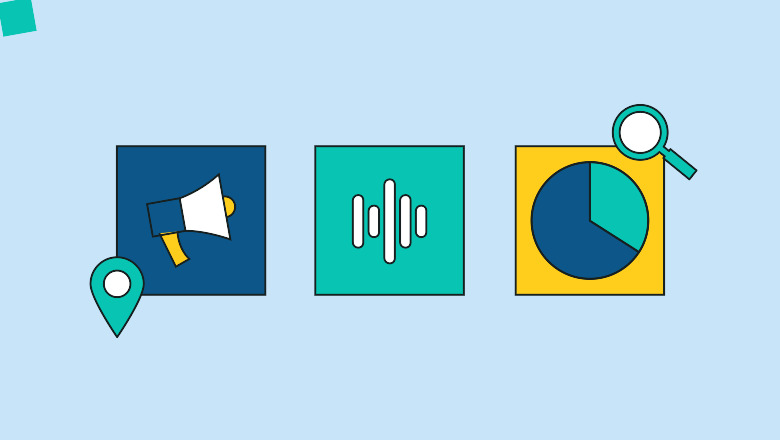In today’s digital landscape, influencer marketing has become an indispensable aspect of any successful social media strategy. Brands are constantly seeking innovative ways to reach their target audience and create authentic connections. Influencer marketing, which involves collaborating with popular personalities and content creators to promote products and services, has proven to be a powerful tool for achieving these goals. In this article, we will explore the best influencer marketing tools available in the market that can significantly enhance your brand’s online presence and boost your social media campaigns. Let’s delve into the exciting world of influencer marketing and discover how these tools can revolutionize your business.
Best Influencer Marketing Tools: Revolutionize Your Social Media Strategy

What is Influencer Marketing?
Influencer marketing is a form of social media marketing that involves partnering with influential individuals who have a large following on platforms like Instagram, YouTube, TikTok, and blogs. These influencers have built a loyal audience around their niche, making them valuable brand advocates. By collaborating with influencers, brands can tap into their reach and credibility, effectively reaching and engaging with their target audience.
Why is Influencer Marketing Effective?
Influencer marketing is highly effective because it leverages the trust and relationship that influencers have with their followers. Unlike traditional advertising, influencer content feels more authentic and relatable, leading to higher engagement and conversion rates. Additionally, influencer marketing allows brands to reach a broader audience, expand their brand awareness, and drive sales.
Finding the Right Influencers
1. Identifying Your Target Audience
Before diving into influencer marketing, it’s crucial to identify your target audience and understand their preferences and interests. This information will help you find influencers whose content aligns with your brand and resonates with your audience.
2. Micro vs. Macro Influencers
When selecting influencers, consider both micro and macro influencers. Micro-influencers have a smaller following but often boast higher engagement rates and niche-specific audiences. Macro influencers, on the other hand, have a massive reach but may not have the same level of audience connection.
3. Using Influencer Marketing Platforms
To simplify the process of finding influencers, you can use dedicated influencer marketing platforms. These platforms allow you to filter influencers based on demographics, interests, and other metrics, making it easier to discover the perfect match for your brand.
Influencer Research and Analytics
1. Understanding Audience Insights
It’s crucial to analyze the audience demographics and behavior of your chosen influencers. This insight will help you ensure that your marketing message aligns with the interests of your target audience.
2. Tracking Influencer Performance
Tracking the performance of influencer campaigns is essential to measure their effectiveness. Utilize tools that provide real-time analytics and metrics to evaluate key performance indicators (KPIs) and make data-driven decisions.
3. Measuring ROI on Influencer Campaigns
Calculating the return on investment (ROI) of influencer campaigns is essential to determine their impact on your business. By analyzing sales data, website traffic, and social media engagement, you can assess the success of your influencer marketing efforts.
Influencer Marketing Campaign Management
1. Setting Clear Campaign Goals
Define specific and measurable goals for your influencer marketing campaigns. Whether it’s increasing brand awareness, driving website traffic, or boosting sales, clear objectives will guide your campaign strategy.
2. Creating Engaging Content
Collaborate with influencers to create authentic and compelling content that aligns with your brand message. Engaging content is more likely to resonate with the audience and generate a positive response.
3. Managing Influencer Relationships
Building strong and positive relationships with influencers is crucial for the success of your campaigns. Effective communication, mutual respect, and fair compensation are essential elements of successful influencer relationships.
Tools for Influencer Discovery
Influencer discovery is a critical phase of any influencer marketing strategy. To find the right influencers for your brand, consider using the following tools:
1. BuzzSumo
BuzzSumo allows you to identify the most popular content in your industry and discover the influencers who share it. You can analyze their social media profiles and engagement metrics to make informed decisions.
2. AspireIQ
AspireIQ helps you find influencers based on your target audience and brand preferences. The platform also assists in managing influencer relationships and measuring campaign performance.
3. Traackr
Traackr provides a comprehensive influencer search, offering valuable insights into their content performance and audience demographics.
4. Influencity
Influencity uses AI-powered technology to find influencers suitable for your brand based on their location, interests, and audience size.
Influencer Analytics Platforms
Measuring the success of influencer campaigns is crucial to refining your strategy and achieving better results. Consider these influencer analytics platforms:
1. Socialbakers
Socialbakers provides in-depth analytics on influencer content performance, audience demographics, and campaign outcomes.
2. HypeAuditor
HypeAuditor focuses on detecting fraudulent influencers and provides authentic engagement data for influencer evaluation.
3. Upfluence
Upfluence offers robust analytics tools to monitor campaign performance, influencer ROI, and audience growth.
4. Mention
Mention allows you to track brand mentions and influencer content across social media platforms, providing valuable insights into brand perception.
Influencer Marketing Automation
Automating certain aspects of influencer marketing can streamline your campaigns and save time. Consider these automation tools:
1. TapInfluence
TapInfluence automates influencer discovery, content collaboration, and performance tracking.
2. Influencify
Influencify offers automated influencer outreach, helping you establish partnerships with influencers seamlessly.
3. Grin
Grin automates influencer payment and contract management, simplifying the administrative aspect of influencer campaigns.
4. Julius
Julius uses AI to match brands with relevant influencers and automate the influencer vetting process.
Influencer Content Management
Managing the content created by influencers is vital for maintaining brand consistency and quality. Consider these content management tools:
1. Tagger Media
Tagger Media provides a centralized platform to manage influencer content, track performance, and monitor campaign success.
2. Lefty
Lefty offers content management and collaboration tools for influencer marketing campaigns, enhancing efficiency and organization.
3. Klear
Klear assists in managing influencer relationships, tracking content performance, and optimizing influencer partnerships.
4. Dovetale
Dovetale helps you streamline influencer content approval processes and track campaign results effectively.
Case Studies: Successful Influencer Marketing Campaigns
Let’s take inspiration from these successful influencer marketing campaigns:
1. Nike’s Collaboration with Colin Kaepernick
Nike’s partnership with Colin Kaepernick, the former NFL quarterback, and civil rights activist, generated massive social media buzz and positively impacted its brand image.
2. Daniel Wellington’s Instagram Influencer Campaign
Daniel Wellington collaborated with micro-influencers to showcase their watches, leading to a significant boost in brand awareness and sales.
3. Glossier’s User-Generated Content Strategy
Glossier encouraged customers to share their makeup looks on social media, turning them into brand advocates and creating a strong sense of community.
Tips for a Successful Influencer Marketing Strategy
Follow these tips to ensure your influencer marketing strategy’s success:
1. Authenticity is Key
Authenticity is essential to building trust with your audience. Collaborate with influencers whose values align with your brand for more genuine connections.
2. Define Clear Objectives
Set clear and achievable objectives for your influencer campaigns to measure their impact accurately.
3. Foster Long-Term Relationships
Building long-term relationships with influencers can lead to more effective and impactful campaigns over time.
4. Leverage User-Generated Content
Encourage your customers to create and share content related to your brand. User-generated content has higher credibility and resonates well with the audience.
Conclusion
Influencer marketing has emerged as a game-changer for businesses seeking to elevate their online presence and engage with their target audience effectively. By leveraging the best influencer marketing tools and implementing a well-defined strategy, brands can create authentic connections and boost their social media impact significantly.
If you’re ready to take your influencer marketing to the next level and see impressive results, don’t hesitate to request a demo from AIM Technologies. Our cutting-edge influencer marketing platform is designed to simplify the process of finding, managing, and analyzing influencers, helping you achieve your marketing goals with ease.
FAQs
What are the benefits of influencer marketing?
- Influencer marketing offers benefits such as increased brand awareness, higher engagement rates, and improved credibility.
How do I measure the success of an influencer marketing campaign?
- To measure success, track key performance indicators (KPIs) like engagement rates, website traffic, and sales generated from the campaign.
What is the difference between micro and macro influencers?
- Micro-influencers have a smaller following but higher engagement rates, while macro-influencers have a larger reach but may lack niche specificity.
How can I find the right influencers for my brand?
- Use influencer marketing platforms like BuzzSumo, AspireIQ, Traackr, and Influencity to discover influencers based on demographics and interests.
What role does automation play in influencer marketing?
- Automation tools like TapInfluence, Influencify, Grin, and Julius streamline influencer discovery, collaboration, and performance-tracking processes.




